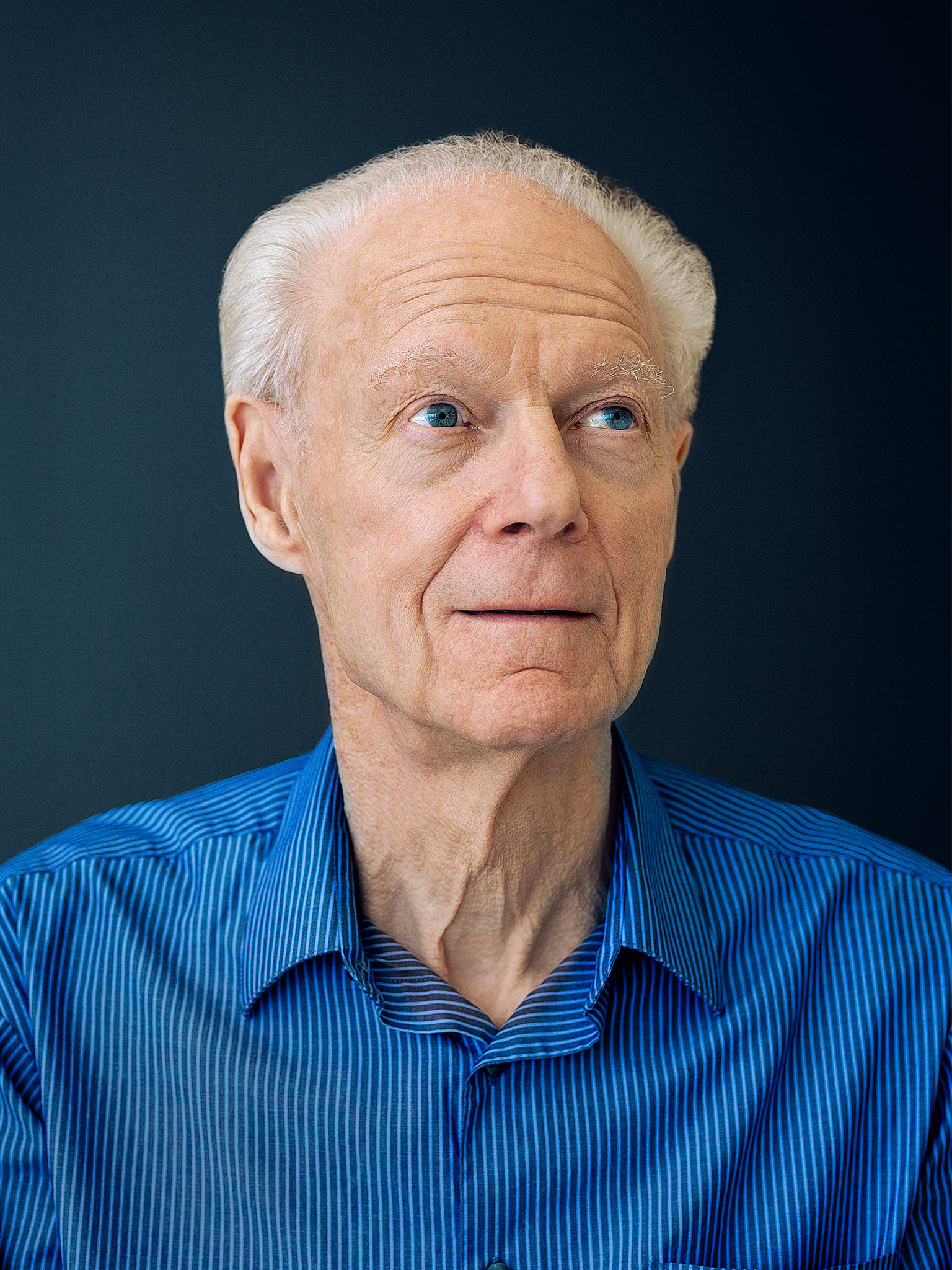Caregiver
by Nichole Jankowski
photography by SOFIE KIRK
When Matthias Hoben came across a job posting for the newly created Helen Carswell Chair in Dementia Care at York University last year, he couldn’t believe his eyes. “It just seemed to be tailored to me,” he says, “as if somebody saw my profile and my interests and wrote that position.”
Awarded in July, York’s newly endowed Chair in Dementia Care is based at the School of Health Policy and Management. It was created by Allan Carswell (Hon. DSC ’14), and funded through the Carswell Family Foundation, in honour of his late wife, Helen, whose struggle with Alzheimer’s disease dominated both of their lives for more than two decades. “My main goal over the past few years was a simple one, that Helen will never be forgotten,” Carswell says.
Now a professor in the Faculty of Health, Hoben was trained as a registered nurse in Germany (a three-year vocational program) and entered the field with more questions than he had the answers for. He was dissatisfied with the “big gap” in his knowledge. “It was not enough for me, just doing clinical work,” he says.
Hoben continued his education in Germany, receiving a diploma in nursing management from Esslingen University of Applied Sciences in 2007, and then an MSc in health and nursing sciences from Martin Luther University Halle-Wittenberg in 2010. Having always focused his practice and research on older adults, when he began searching for a dissertation topic for his PhD, he was connected with a Canadian research team that specialized in finding ways to improve quality of care for nursing home residents.
“I’m a nurse by training but my research has never just been about nursing,” Hoben says. “It has always been a very interdisciplinary approach with a focus on improving the quality of care and quality of life of older adults in need of care, as well as their unpaid family-friend caregivers and the professional paid caregivers.”
It’s something Allan Carswell knows too well. As his wife’s capabilities were diminished by Alzheimer’s, his day-to-day life as her primary caregiver became increasingly oriented toward her needs. “It’s a continually changing set of circumstances,” he says of the progressive disease. “On several occasions, we sat down and tried to decide, ‘OK, what are we going to do for our future?’ We never really could come up with any magic answers.”

It wasn’t until Carswell’s discovery of the Alzheimer Society of York Region’s day program that he regained some of his own independence. “Every decision that I ever made had to answer the question, ‘How would this interact with Helen?’” Carswell explains.
The program offers dementia-specific individualized care, such as recreational social programming and structured daily activities in addition to a daily hot meal. Participants also benefit from hair care and a foot care clinic. There is support for caregivers as well, something he came to appreciate. Because it was a supervised environment, Carswell – a professor emeritus in the Faculty of Science – could leave his wife for two or three hours, or even a full day without having to worry about her. Helen’s case was complex, but once Carswell became familiar with the staff, he found “total confidence” in their abilities.
“In my lifetime, there was nothing that was more supportive than the day program,” says Carswell. “That gave me a life that I would never have had, because if I was with Helen I had to do whatever she needed all the time.”
But the question of whether older-adult day programs benefit participants and their caregivers in the way they’re intended to is one that research has failed to examine. In his role as Chair, Hoben will evaluate programs providing care to older adults living with dementia, looking at whether they are effective in preventing or delaying a move into long-term care homes, and decrease the physical or cognitive decline of participants. He will also examine the question of whether the programs reduce the workload of caregivers. York’s Faculty of Health is collaborating with the Alzheimer Society of York Region on the research program.
For those wishing to access such programs, Hoben noted that a lack of information can be a barrier. There is no public register, so finding local day-program settings for older adults can be a challenge in and of itself. To add to the confusion, many programs operate privately, calling themselves spas. Others, like the ones run by the Alzheimer Society, rely on donations. Funding and regulatory oversight could help with access, in standardizing care and reducing risk factors, but more research is needed to secure provincial support.
Over the course of his five-year term, Hoben will be conducting research and collecting and analyzing data that, in answering these questions, will provide guidance on how to best improve the quality of care for people living with dementia. For its potential to impact policy and availability of such programs, the findings of this research program could have immeasurable impact on those living with dementia and their caregivers.
Carswell says if there was one lesson he learned from his wife’s diagnosis it is that you have to take every day on its own merits. “Life is an adventure,” he says. “You have no idea what’s around the corner.” ■